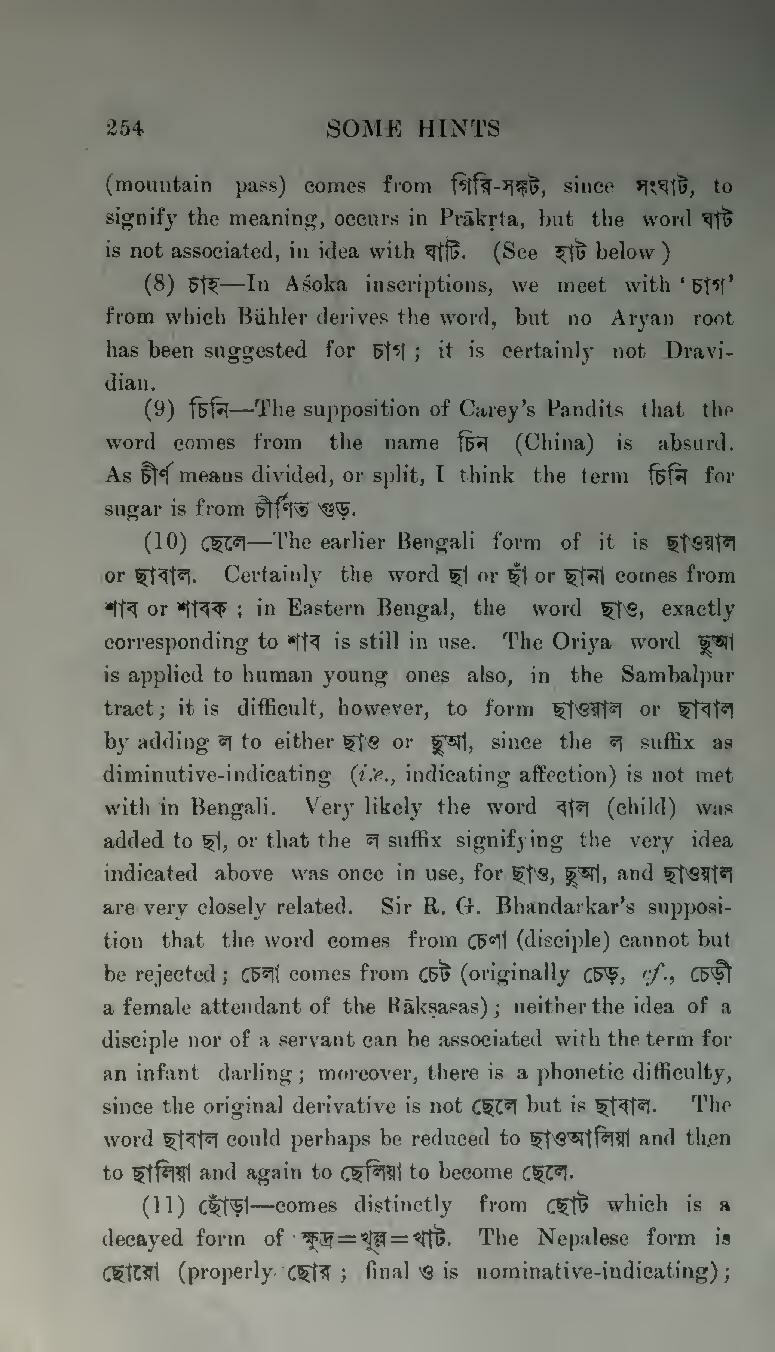(mountain pass) comes from গিরি-সঙ্কট, since সংঘাট, to signify the meaning, occurs in Prākṛta, but the word ঘাট is not associated, in idea with ঘাটি. (See হাট below)
(8) চাহ—In Aśoka inscriptions, we meet with 'চাগ' from which Bühler derives the word, but no Aryan root has been suggested for চাগ; it is certainly not Dravidian.
(9) চিনি—The supposition of Carey's Pandits that the word comes from the name চিন (China) is absurd. As চীর্ণ means divided, or split, I think the term চিনি for sugar is from চীর্ণিত গুড়.
(10) ছেলে—The earlier Bengali form of it is ছাওয়াল or ছাবাল. Certainly the word ছা or ছাঁ or ছানা comes from শাব or শাবক; in Eastern Bengal, the word ছাও, exactly corresponding to শাব is still in use. The Oriya word ছুআ is applied to human young ones also, in the Sambalpur tract; it is difficult, however, to form ছাওয়াল or ছাবাল by adding ল to either ছাও or ছুআ, since the ল suffix as diminutive-indicating (i.e., indicating affection) is not met with in Bengali. Very likely the word বাল (child) was added to ছা, or that the ল suffix signifying the very idea indicated above was once in use, for ছাও, ছুআ, and ছাওয়াল are very closely related. Sir R. G. Bhandarkar's supposition that the word comes from চেলা (disciple) cannot but be rejected; চেলা comes from চেট (originally চেড়, cf. চেড়ী a female attendant of the Rākṣasas); neither the idea of a disciple nor of a servant can be associated with the term for an infant darling; moreover, there is a phonetic difficulty, since the original derivative is not ছেলে but is ছাবাল. The word ছাবাল could perhaps be reduced to ছাওআলিয়া and then to ছালিয়া and again to ছেলিয়া to become ছেলে.
(11) ছোঁড়া—comes distinctly from ছোট which is a decayed form of ক্ষুদ্র = খুল্ল = খাট. The Nepalese form is ছোরো (properly ছোর; final ও is nominative-indicating);
